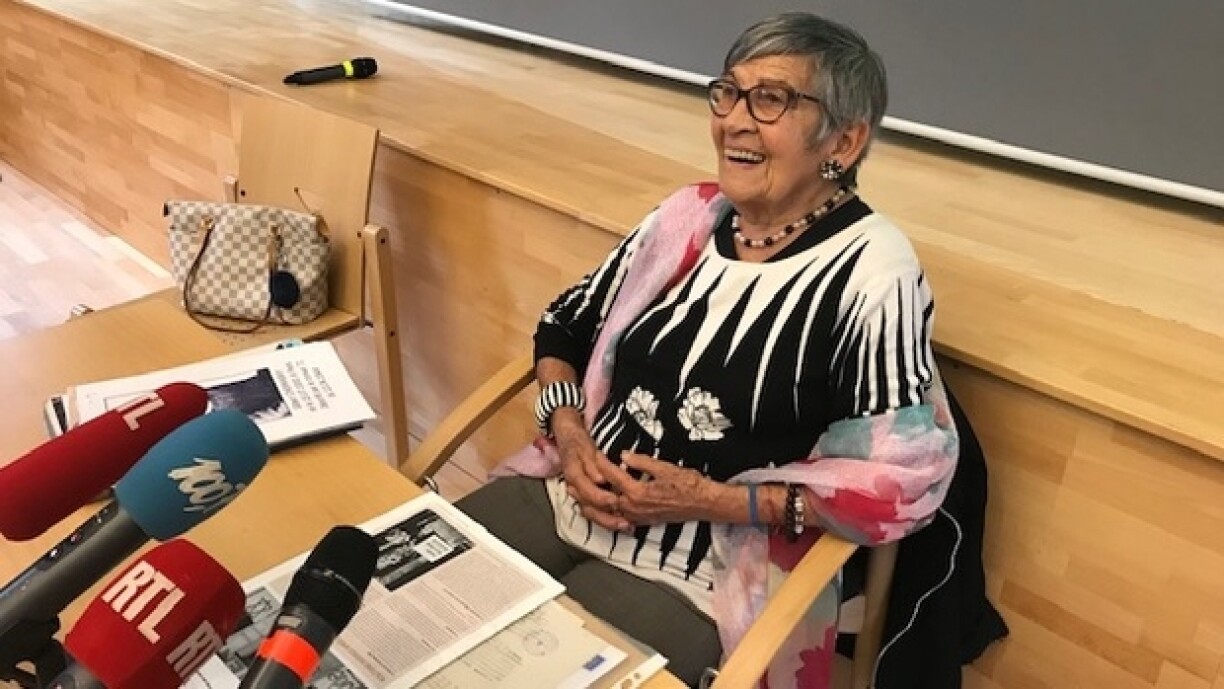
March 1944: Ginette Kolinka is only 20 years old. The young woman is getting ready to go out to lunch with her father, her brother and her nephew, when the Gestapo stops them.
After passing through the prisons of Avignon, Marseille and Drancy, they are sent to Auschwitz-Birkenau. On their arrival, vans stood ready to transport people who were sick, tired or unwilling/unable to walk. Her 61-year-old father and her 13-year-old brother had advised her to go with one of the lorries.
At first, Ginette didn’t want to believe what the other women in the camp told her about the people who had gotten into the lorries: “We didn’t believe them. How could we? They were telling us that the smoke stemmed from people, that they were all asphyxiated, murdered. These women, they were wicked! Jealous! This was excessive, even for revenge.”
At the camp, they were basically made into robots. After the Auschwitz-Birkenau camp, Ginette Kolinka was transferred to Bergen Belsen and Theresienstadt. In May 1945, she was again transferred to a camp but on her arrival, allies had liberated these same camps. She was then sent to reception centres where she was told that her mother and five sisters had not been deported and were living in their old apartment in Paris. It wasn’t until a month later that she was able to reunite with her family.
Only in 2000 did Ginette Kolinka begin to testify about her experience, and she intends to keep at it.
During the first years after the war, the witness said that she could not bear to hear the German language. But things had changed a lot since, and Ginette was clear on differentiating between the Germans and the Nazis: “I can guarantee, I don’t mind seeing German people, hearing the German language, it doesn’t bother me. Any man or woman of 75, they would have been a baby when the war ended. Am I going to blame them? They didn’t do anything to me.”
The 94-year-old lady published a book in May in which she tells her story, called “Back to Birkenau”.